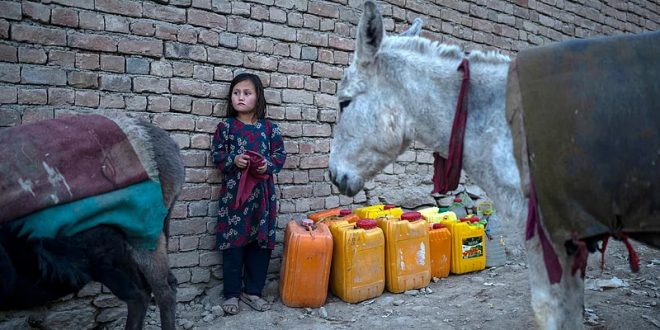KABUL — Kabul, home to over six million people, is on course to become the first capital city in modern history to run entirely out of water by 2030, a new report by Mercy Corps has revealed. Amid climate change, rapid population growth, and years of mismanagement, the city’s underground aquifers — its only source of water — are depleting at an alarming rate. Nearly half of Kabul’s boreholes have already gone dry, and extraction exceeds natural recharge by 44 million cubic meters annually. UN agencies now warn that three million residents could soon be displaced.
The crisis, described as a “multi-layered disaster,” has led to the closure of schools and health clinics, rising prices for water tank deliveries, and conflict among communities competing for dwindling supplies. Most groundwater in Kabul is now dangerously contaminated with chemicals like arsenic and nitrates, making it unfit for human consumption. “Water is life,” the UN wrote in a statement on X. “Kabul may have none by 2030.”
The impacts of climate change have accelerated the collapse. A historic drought from 2021–2024 affected over 11 million Afghans, while melting snow from the Hindu Kush, once the city’s natural recharge system, has slowed to a trickle. Between October 2023 and January 2024, Kabul received less than 60% of normal precipitation levels.
The situation is worsened by political instability. The collapse of U.S. aid programs following the 2021 Taliban takeover — including USAID’s water and sanitation support — has gutted development funding. Major projects like the Shah Toot Dam and Panjshir pipeline remain stalled due to lack of financing. Mercy Corps’ Von Zahn warned, “We’re witnessing a dangerous mix: collapsing local systems, frozen foreign aid, and a climate emergency — while millions of Afghans are left to fend for themselves.”
Private companies have filled the void, tapping deep wells and selling water at inflated prices, while the poorest suffer. Surveys as far back as 2008 flagged water scarcity as a major cause of tribal tensions, a problem that has only worsened. Experts warn that unless urgent action is taken by both local authorities and the international community, Kabul may not just run out of water — it could become uninhabitable.
 Afghanistan Times
Afghanistan Times




